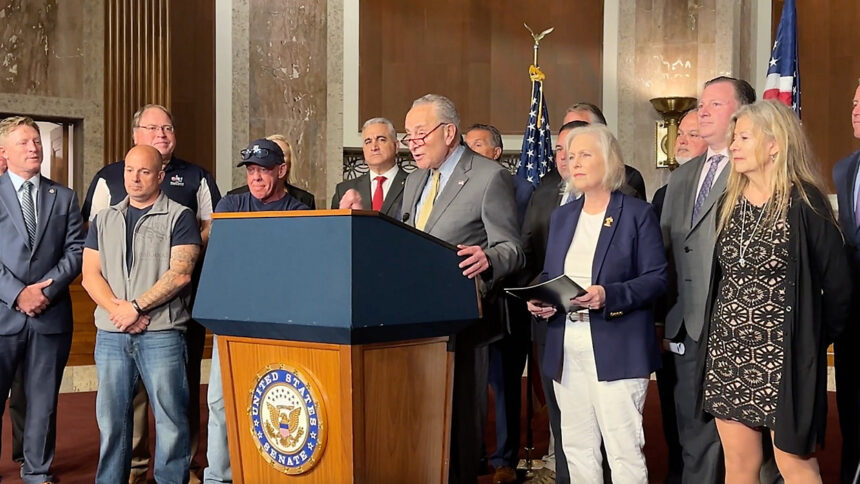It’s been 24 years since 9/11, and the pain is still real for so many. We said we’d never forget, and that means keeping our promises. Right now, there’s an urgent need for more money for the 9/11 Health Program, which takes care of the survivors and first responders. If we don’t get enough money, we’re breaking our promise to the people who risked everything. The World Trade Center Health Program was made to give long-term medical care to those who were around the toxic aftermath, like firefighters, cops, EMTs, construction workers, teachers, and even children. The need has only gotten bigger.

Over 140,000 people are now in the program, and many are fighting cancers that are linked to the exposure. Others have breathing problems, PTSD, and mental health issues. The problem is that the money is running out. Experts are saying that the program might not be able to take any new patients by 2027. Can you imagine telling a firefighter or a teacher with cancer that the program is full? That’s what people are trying to keep from happening.
After the attacks, our leaders promised that we would never forget. Now, budget problems in Washington could make that promise pointless. People who support the program say that we owe these people more than just words. We owe them treatment, coverage, respect, and action. One retired firefighter said that if the government sent them to fight fires that day, they should fight for them now.
On this year’s 9/11 anniversary, the reminders were everywhere. Names were read, bells were rung, and wreaths were laid. Among the people there were first responders, some with oxygen tanks and masks, who are still dealing with what happened that day, even decades later.
The program was meant to be a lifeline, and it has really helped a lot of people. Survivors have said that it’s the only way that they can pay for treatments and therapists. But every year, more patients are diagnosed. The toxic cloud didn’t just disappear. It had an impact on thousands of people. Rare cancers, tumors, and breathing problems are showing up in people who thought they were safe. Some didn’t even know that their sickness was related to 9/11 until years later.
That’s what people are worried about: What will happen when the need gets bigger, but the money doesn’t? Politicians argue about budgets, but families are saying that this shouldn’t even be a question. It’s something that we owe.
Jon Stewart has called out lawmakers for showing up to the ceremonies but disappearing when it’s time to make decisions. His words still hit hard because they’re true. Every year, people who survived and those who support them have to remind Congress that the need is still there. Every time there’s a delay, it feels like an insult to people who have already given up so much.
There’s still hope. The public still supports the program. Surveys have shown that most Americans agree that the government should fully fund it. Families and groups are speaking out, mostly during anniversaries. Doctors are speaking up, too, and warning that without enough money, people won’t get treatment, and lives will be lost.
The stories really make it real: a mother holding a photo of her son, who died at 23, and a retired police officer with cancer who is scared of medical bills more than the towers falling, a teacher led kids out of a smoky











